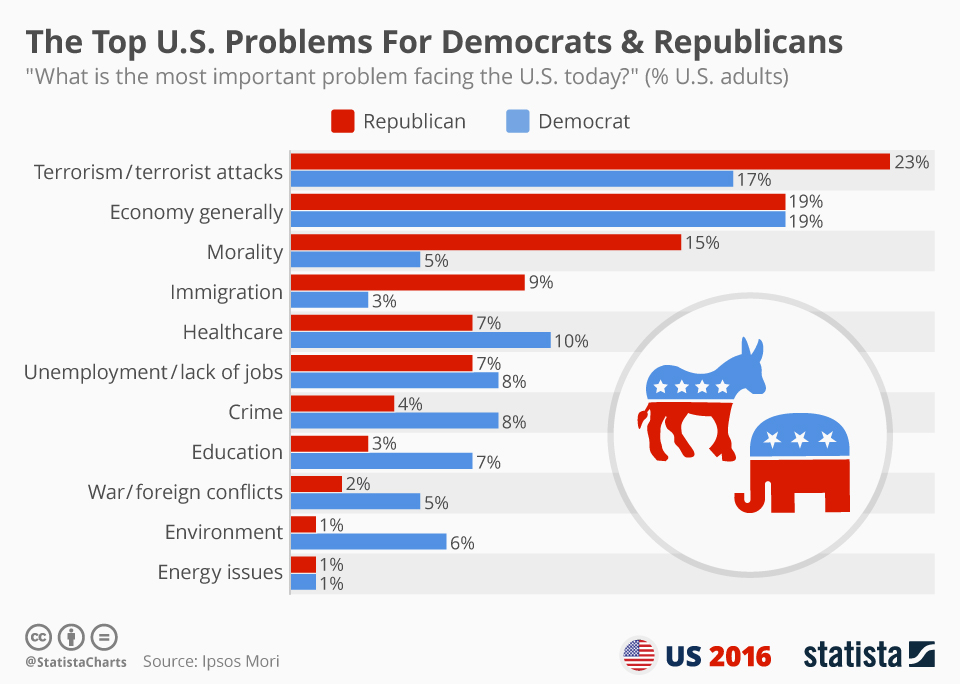German Election: Key Issues And Potential Outcomes

Table of Contents
The Economy and its Challenges
Germany's economic performance significantly impacts the European Union and the global economy. The German Election will heavily influence the country's economic trajectory. Several key economic challenges dominate the political discourse.
Managing Post-Pandemic Recovery
Germany, like many other nations, faces the challenge of navigating a post-pandemic economic recovery. Fiscal policy debates are central to the German Election campaign, with parties offering differing approaches.
- High National Debt: The pandemic increased Germany's national debt, requiring careful fiscal management to avoid long-term economic instability.
- Inflation Concerns: Rising inflation is a major concern, impacting purchasing power and potentially slowing economic growth. Parties are debating strategies to mitigate inflation's impact.
- The Energy Transition (Energiewende): The transition to renewable energy sources presents both opportunities and challenges, requiring significant investment and potential economic restructuring.
Different parties propose various economic stimulus packages and growth strategies. Some favor increased government spending on infrastructure projects and social programs, while others prioritize tax cuts and deregulation to stimulate private sector investment. The German Election will determine which approach prevails, significantly shaping the country's economic future.
Climate Change and the "Energiewende"
The Energiewende, Germany's ambitious energy transition, remains a central issue in the German Election. The debate centers on the speed and methods of this transition.
- Renewable Energy Sources: Expanding renewable energy sources like solar and wind power is crucial, but challenges remain in integrating them into the existing energy grid.
- Nuclear Power: The role of nuclear power in the energy mix remains controversial, with some parties advocating for extending the lifespan of existing plants while others firmly oppose nuclear energy.
- Fossil Fuels: Phasing out fossil fuels is a key goal, but the timing and methods of this transition are intensely debated, particularly considering potential impacts on energy security and affordability.
The economic implications of the Energiewende are substantial. The transition will require significant investment in renewable energy infrastructure and may impact employment in traditional energy sectors. The German Election will likely determine the pace and approach to this crucial transition.
Digitalization and Technological Advancement
Digitalization is transforming the German economy, and the German Election will determine the country's approach to this technological revolution.
- Digital Infrastructure: Investing in robust digital infrastructure, including high-speed internet access, is crucial for competitiveness and economic growth.
- Artificial Intelligence (AI): The ethical and economic implications of AI development and deployment are debated, with parties proposing differing regulatory frameworks.
- Data Privacy and Cybersecurity: Protecting citizens' data and ensuring cybersecurity are paramount, with differing approaches to data regulation and cybersecurity measures proposed by the various parties.
The German Election will determine the level of government investment in digital infrastructure and the regulatory environment for emerging technologies. This will significantly influence Germany's competitiveness in the global digital economy and its impact on employment and social welfare.
Social Issues and Immigration
Social issues and immigration policies are significant factors influencing the German Election. The interplay between these issues shapes the political landscape and will greatly influence the next government's agenda.
Immigration and Integration Policies
Immigration and integration remain highly debated topics in Germany. Different parties hold diverse positions on these issues:
- Immigration Quotas: The debate centers on whether to implement quotas for immigrants or maintain the current system.
- Asylum Seekers: Policies regarding asylum seekers and refugees are another focal point, with differing views on asylum procedures and integration programs.
- Integration Programs: The effectiveness of existing integration programs and the need for improvements are key discussion points.
Public opinion on immigration is diverse and significantly influences the German Election. The challenges of integrating refugees and migrants into German society effectively will remain a central concern for the winning party.
Healthcare and Social Welfare
The German welfare state is a cornerstone of German society, but its sustainability faces challenges due to demographic changes and rising healthcare costs. Party platforms offer differing approaches to these issues:
- Healthcare Reform: Proposals for healthcare reform vary, with debates focusing on cost containment, access to care, and the role of private versus public healthcare.
- Social Security and Pension Systems: The long-term sustainability of Germany's social security and pension systems is a significant concern, with parties proposing different reform measures.
- Demographic Change: Germany's aging population poses challenges to the welfare state, requiring innovative solutions to ensure the long-term viability of social security and healthcare systems.
Foreign Policy and European Union Relations
Germany's role in the European Union and its international relations are pivotal issues in the German Election. The outcome will have significant implications for Europe and the world.
Germany's Role in the European Union
Germany's position within the EU and its influence on EU policy are central to the German Election.
- European Integration: Parties hold diverse views on the future of European integration, ranging from advocating for deeper integration to prioritizing national interests.
- EU Budget: The German Election will influence Germany's position on the EU budget and its contribution to the EU's funding mechanisms.
- Relationships with Other EU Member States: Germany's relationships with other EU member states will be shaped by the outcome of the German Election, potentially impacting EU decision-making processes.
International Relations and Geopolitical Issues
Germany's foreign policy priorities and its stance on key geopolitical issues are significant elements of the German Election.
- Relations with Russia, China, and the US: Parties have different approaches to managing Germany's relationships with these major global powers.
- Climate Change, Security, and Trade: The election will shape Germany's engagement with international efforts on climate change, security, and trade.
- Germany's Role in International Affairs: The outcome of the German Election will significantly impact Germany's role in international organizations and its influence on global affairs.
Conclusion
The German election presents critical choices for the country and Europe. The outcome will significantly impact economic policy, social welfare programs, and Germany's role on the world stage. Understanding the key issues, as outlined above, is crucial for navigating the complex political landscape. The potential scenarios range from a continuation of the current coalition government to a completely new political alignment. Stay informed about the German Election and its potential outcomes to fully grasp its implications for Germany and the global community. Keep up to date with the latest news and analysis to make informed decisions in the run-up to this important German Election.

Featured Posts
-
 Milano Sanremo 2025 E Sanremo Women Quando E Dove Vedere La Corsa In Provincia Di Imperia
May 14, 2025
Milano Sanremo 2025 E Sanremo Women Quando E Dove Vedere La Corsa In Provincia Di Imperia
May 14, 2025 -
 David Ornstein Arsenal Keen On Premier League Talent
May 14, 2025
David Ornstein Arsenal Keen On Premier League Talent
May 14, 2025 -
 Assessing Nottingham Forests Striking Options Why Another Striker Is Crucial
May 14, 2025
Assessing Nottingham Forests Striking Options Why Another Striker Is Crucial
May 14, 2025 -
 Selin Dion Biografiya Osobiste Zhittya Khvoroba Ta Potochniy Stan
May 14, 2025
Selin Dion Biografiya Osobiste Zhittya Khvoroba Ta Potochniy Stan
May 14, 2025 -
 Boycott Eurovision In Israel Directors Response
May 14, 2025
Boycott Eurovision In Israel Directors Response
May 14, 2025
